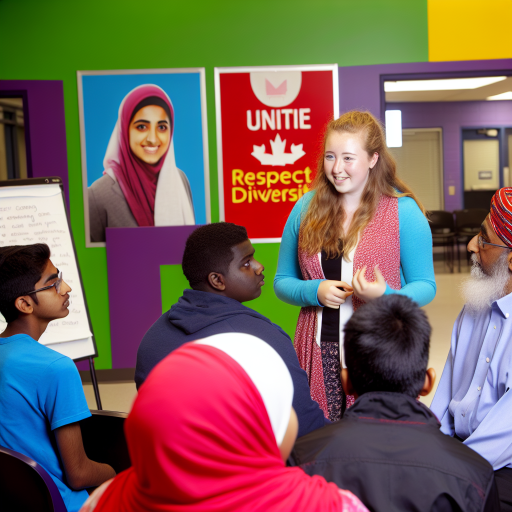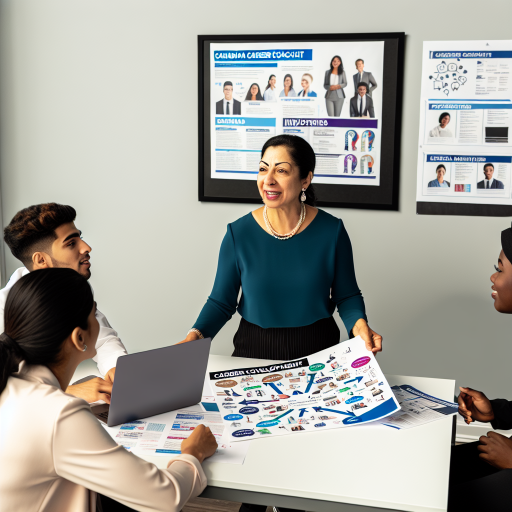Overview of the Role and Responsibilities of a Youth Program Facilitator
Daily Responsibilities
A youth program facilitator engages with participants daily.
They design and implement effective program content.
Additionally, they assess participant needs and tailor activities.
Communication is key in building relationships with youth.
Furthermore, they collaborate with schools and community organizations.
Event Planning and Coordination
Planning workshops and events is a core part of the role.
Facilitators select themes and develop engaging content.
They also organize logistics, including location and materials.
Managing volunteers ensures a smooth operation during events.
Moreover, facilitators promote events through various channels.
Monitoring and Evaluation
Monitoring participant engagement helps assess program success.
Facilitators collect feedback and analyze program outcomes.
They track attendance and participation metrics carefully.
This data informs future program adjustments and enhancements.
In doing so, they ensure programs meet participant needs effectively.
Professional Development
Continuous learning enhances a facilitator’s skills and knowledge.
They attend training sessions on youth development topics.
Networking with peers provides valuable insights and resources.
Additionally, staying updated on best practices is essential.
Facilitators advocate for youth needs within their communities.
Daily Schedule: A Typical Day in the Life of a Youth Program Facilitator
Morning Routine
The day often begins early for a youth program facilitator.
They usually start with a quick morning briefing.
This meeting helps set the day’s agenda and priorities.
Afterwards, they prepare materials for activities.
This preparation ensures everything runs smoothly.
Unlock Your Career Potential
Visualize a clear path to success with our tailored Career Consulting service. Personalized insights in just 1-3 days.
Get StartedEngaging with Youth
Once at the venue, the facilitator greets the participants.
They create a welcoming atmosphere to encourage engagement.
Icebreaker activities are often used to build trust.
This fosters a sense of community among the youth.
Conducting Activities
Throughout the day, the facilitator leads various activities.
These can range from workshops to sports events.
Each activity is designed to promote skills and teamwork.
Facilitators adapt to the needs and interests of the group.
Reflection and Feedback
After activities, the facilitator organizes a reflection session.
This allows participants to share their experiences.
Feedback is crucial for continuous improvement.
Facilitators encourage open dialogue during this time.
Administrative Tasks
Once the day concludes, administrative tasks begin.
This includes updating attendance records and activity reports.
Facilitators also plan for upcoming sessions.
Keeping track of supplies is essential for future activities.
Building Relationships
Outside of activities, building relationships is important.
Facilitators often engage with parents and community partners.
This helps create a support network for the youth.
Good communication enhances the overall program experience.
Key Skills and Qualifications Required for Effective Youth Facilitation
Essential Communication Skills
Effective youth facilitators must communicate clearly and understandably.
Active listening skills are crucial for connecting with young people.
Furthermore, they should adapt their communication style based on the audience.
Writing skills help in creating engaging materials for various activities.
Overall, strong verbal and non-verbal communication enhances youth engagement.
Leadership and Motivation
A successful facilitator demonstrates strong leadership qualities.
They should inspire and motivate youth to participate and express themselves.
Moreover, they create a positive environment for collaboration and trust.
Providing constructive feedback empowers young people to grow.
Consequently, effective leadership boosts overall program success.
Conflict Resolution and Problem-Solving Skills
Youth programs often face conflicts and challenges.
Facilitators need to remain calm and objective during disputes.
They should use effective conflict resolution strategies to mediate issues.
Additionally, strong problem-solving skills drive quick and innovative solutions.
This ability fosters a safe and supportive atmosphere for everyone involved.
Understanding of Youth Development
A firm grasp of youth development principles is vital for facilitators.
This knowledge forms the foundation for tailored programming and activities.
Facilitators should be aware of the different stages of adolescent growth.
They can then tailor their approach based on individual needs.
Consequently, understanding youth development enhances the learning experience.
Cultural Competence
Cultural competence ensures inclusivity within youth programs.
Facilitators must respect and celebrate diversity among participants.
Understanding varying backgrounds helps in building meaningful connections.
Furthermore, cultural awareness leads to more effective communication strategies.
Ultimately, this skill fosters a sense of belonging for all youth.
See Related Content: Key Benefits of Hiring a Career Coach in Canada
The Importance of Building Rapport with Youth Participants
Creating a Safe Environment
Establishing rapport begins with creating a safe environment.
Youth participants thrive when they feel secure and valued.
Facilitators can create this safety through open communication.
Additionally, a welcoming atmosphere encourages participation.
Trust develops when youth feel their opinions matter.
Understanding Individual Needs
Every participant has unique needs and backgrounds.
Facilitators should strive to understand these individual differences.
Active listening plays a crucial role in this process.
By acknowledging their experiences, youth feel respected.
This understanding fosters a stronger connection between facilitators and participants.
Encouraging Open Communication
Open communication allows for genuine interactions.
Facilitators should encourage youth to express themselves freely.
Moreover, validating their feelings enhances rapport.
Facilitators can ask open-ended questions for deeper dialogue.
This practice facilitates a space for sharing thoughts and emotions.
Building Trust through Consistency
Consistency in behavior builds trust with youth participants.
It’s essential for facilitators to be reliable and fair.
Consistency fosters a sense of predictability among participants.
Furthermore, it reinforces the facilitator’s commitment to their well-being.
Trust grows when youth know they can depend on their facilitator.
Promoting Teamwork and Collaboration
Group activities promote teamwork and strengthen bonds.
Facilitators can encourage collaboration among participants.
Working together fosters friendships and camaraderie.
Additionally, it enhances communication skills and empathy.
Through collaboration, participants feel part of a community.
You Might Also Like: Youth Program Facilitator Salary Insights in Canada
Program Development: Planning Engaging Activities and Workshops
Identifying Community Needs
The first step in program development involves understanding community needs.
Conduct surveys to gather input from youth and families.
Use focus groups to explore specific interests and challenges.
Incorporate feedback into the planning process.
Setting Clear Objectives
Next, establish clear and measurable objectives for each program.
Determine what you want participants to achieve.
Consider both short-term and long-term outcomes.
Additionally, involve stakeholders in formulating these objectives.
Designing Engaging Activities
Creating engaging activities keeps participants interested and motivated.
Incorporate hands-on experiences, such as workshops and group projects.
Use creative approaches, like arts and crafts, to enhance learning.
Furthermore, include physical activities to promote health and teamwork.
Scheduling and Logistics
Plan a detailed schedule that accommodates participants’ availability.
Consider time constraints and existing commitments of the youth.
Ensure you have the necessary materials and resources ahead of time.
Emphasize flexibility to adapt to unforeseen circumstances.
Promotional Strategies
Effective promotion is crucial for program success.
Utilize social media platforms to reach a wider audience.
Create flyers and posters to distribute in community centers and schools.
Engage local influencers to help spread the word about programs.
Implementation and Facilitation
Execute the planned activities while maintaining a positive environment.
Facilitators should encourage participation and ensure inclusivity.
Monitor group dynamics to foster a supportive atmosphere.
Adapt to the needs and feedback of participants in real-time.
Evaluation and Feedback
At the end of each program, gather feedback from participants.
Use surveys or discussions to assess the success of activities.
Identify what worked and what areas need improvement.
Lastly, use this information to enhance future programs.
Uncover the Details: Challenges Faced by Early Childhood Educators and Solutions
Collaboration with Stakeholders
Working with Schools
Collaboration with schools is vital for youth program facilitators.
Establishing strong connections fosters support among educators.
Regular meetings ensure everyone is on the same page.
Facilitators often invite teachers to share insights on student needs.
This collaboration enhances program effectiveness and relevance.
Moreover, school staff contribute ideas for activities and workshops.
Ultimately, these partnerships create a supportive environment for youth.
Engaging with Parents
Engaging parents strengthens the bridge between home and programs.
Facilitators organize workshops to educate parents about resources.
Open communication is essential for addressing concerns and suggestions.
Furthermore, feedback from parents helps tailor programs to their needs.
Collaborative events encourage family participation in youth activities.
These interactions build trust and promote community involvement.
Involving Community Members
Community involvement is crucial for program sustainability.
Facilitators reach out to local organizations and businesses for support.
Building partnerships broadens resource availability and opportunities.
Volunteers from the community often bring unique skills and perspectives.
Regular community meetings foster a sense of ownership and pride.
Such collaborations ensure programs reflect local values and needs.
Incorporating community feedback enhances program relevance and success.
Gain More Insights: Why Youth Program Facilitators Are Essential in Canada

Challenges Faced in Youth Facilitation and Strategies to Overcome Them
Understanding Communication Barriers
Youth program facilitators often face communication barriers.
These barriers can arise from language differences.
Cultural misunderstandings can also play a role.
To improve communication, facilitators should use simple language.
Additionally, visual aids can enhance understanding.
Encouraging open dialogue fosters an inclusive atmosphere.
Engaging Diverse Youth Groups
Facilitators encounter diverse groups with different interests.
Some youth may feel disconnected from activities.
To engage these individuals, facilitators should learn their preferences.
Offering varied activities can attract broader participation.
Also, involving youth in planning increases their investment.
Handling Behavioral Challenges
Behavioral issues can disrupt programs significantly.
Some youth may exhibit challenging behaviors due to various reasons.
To manage these challenges, facilitators need clear expectations.
Consistent consequences help youth understand boundaries.
Additionally, positive reinforcement encourages good behavior.
Building Trust and Rapport
Establishing trust with youth is essential for effective facilitation.
However, youth might be hesitant to open up initially.
Facilitators should approach youth with empathy and patience.
Active listening encourages youth to share their thoughts comfortably.
Ultimately, regular interactions help build strong relationships.
Balancing Program Structure and Flexibility
Facilitators must balance structure with the need for flexibility.
Rigid programs may not cater to the dynamic needs of youth.
Thus, facilitators should adapt activities based on group dynamics.
Flexibility allows for spontaneous discussions and explorations.
This adaptability keeps the program engaging for participants.
Evaluating Program Effectiveness
Assessing the effectiveness of programs poses another challenge.
Facilitators need reliable methods to gauge participant satisfaction.
Feedback surveys can provide valuable insights into youth experiences.
Additionally, facilitators should encourage informal feedback sessions.
Ongoing evaluation helps in refining future programs positively.
Utilizing Feedback: Assessing and Adapting Programs Based on Youth Input
The Importance of Youth Feedback
Youth feedback plays a vital role in program development.
Listening to young people’s opinions shapes effective programming.
It helps facilitators understand the diverse needs of participants.
Moreover, youth insights foster a more inclusive environment.
Collecting Feedback
Diverse methods can collect feedback from youth participants.
Surveys are a common way to gather structured feedback.
Focus groups facilitate deeper conversations about experiences.
Informal check-ins allow for spontaneous feedback opportunities.
Using digital platforms can enhance engagement with youth.
Analyzing Feedback
Analyzing collected feedback helps identify trends and areas for improvement.
Facilitators should categorize feedback into common themes.
Data analysis helps prioritize the most significant feedback points.
This process enables targeted program adaptations.
Implementing Changes
Adapting programs involves making informed changes based on feedback.
Facilitators should communicate changes to participants effectively.
Transparency builds trust and encourages ongoing feedback.
Additionally, facilitators can pilot changes before full implementation.
Continuously Improving Programs
Continuous improvement is essential for youth program success.
Regular feedback collection ensures programs remain relevant.
Encouraging a culture of feedback creates a cycle of improvement.
Ultimately, adaptable programs better meet the evolving needs of youth.
Professional Development Opportunities for Youth Program Facilitators
Importance of Professional Development
Professional development enhances skills for youth program facilitators.
It provides them with essential tools to excel in their roles.
Moreover, continuous learning keeps facilitators updated with best practices.
Types of Professional Development Opportunities
Several opportunities exist to foster growth in youth program facilitators.
Workshops offer hands-on experience in various topics.
Conferences provide networking chances and knowledge sharing.
Online courses are accessible at any time for convenience.
Mentoring from experienced professionals aids personal development.
Workshops and Training Sessions
Workshops focus on specific skill sets like communication and leadership.
These sessions often involve interactive activities for better retention.
For instance, facilitators might engage in role-playing scenarios.
Training sessions can be tailored to meet unique organizational needs.
Networking through Conferences
Conferences gather professionals from varied backgrounds.
They offer a platform to discuss challenges and solutions within the field.
Facilitators can connect with potential collaborators and mentors.
Such interactions often lead to innovative ideas and strategies.
Flexible Learning through Online Courses
Online courses cater to busy schedules, making learning flexible.
Many platforms provide certifications upon completion.
Courses cover diverse topics relevant to youth programming.
Facilitators may learn at their own pace while balancing other commitments.
The Role of Mentorship
Mentorship plays a pivotal role in professional growth.
Experienced mentors can guide new facilitators through challenges.
They provide insights based on real-world experiences.
Strong mentorship fosters confidence and builds leadership skills.




